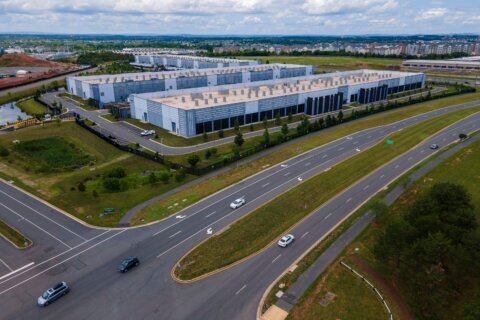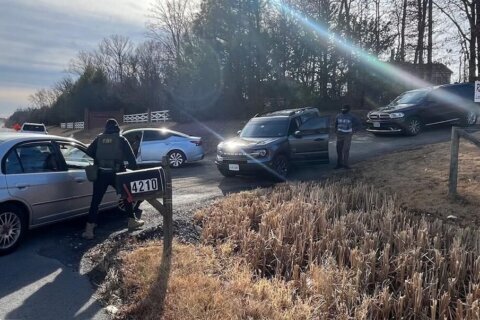This article was republished with permission from WTOP’s news partner InsideNoVa.com. Sign up for InsideNoVa.com’s free email subscription today.
This article was written by WTOP’s news partner InsideNoVa.com and republished with permission. Sign up for InsideNoVa.com’s free email subscription today.
Prince William County supervisors voted to advertise a potential 7% increase in real estate tax bills for county homeowners.
The Board of Supervisors voted 5-3 on party lines to advertise the fiscal 2022 tax rates as proposed for a public hearing as its meeting stretched to early Wednesday morning. Democrats voted in favor of the proposed rates and Republicans opposed them.
County Executive Chris Martino has proposed a $1.35 billion budget for fiscal 2022, which starts July 1, along with a $1.02 billion six-year Capital Improvement Program. The capital program includes $224.8 million for the upcoming fiscal year.
Residential real estate and personal property tax rates are not proposed to increase, although the average homeowner will pay more due to higher assessments under the spending plan.
The board is not bound by the advertised rates. The advertisement only represents a ceiling and the board can adopt rates lower than advertised.
The board’s discussion on the rates stretched past midnight. Republicans said higher tax bills would hurt struggling families during the coronavirus pandemic while some Democrats said the budget provides vital services to people in need.
The real estate rate is advertised at $1.125 per $100 of assessed value, but rising property values are expected to increase the average residential homeowner’s tax bill by $306, according to county staff.
The budget proposal says residential real estate values increased by an average of 7%, while commercial real estate values dropped an average of 4.5%. The increased assessments would result in an effective tax increase for residential properties, but a drop for commercial.
For example, a home valued at $400,000 in 2020 would be worth $428,000 for tax purposes in 2021, at a 7% increase. If the real estate tax rate remains the same, the homeowner’s taxes would go up from $4,500 to $4,815.
Budget Director David Sinclair has said the real estate tax rate would need to drop to around $1.05 per $100 of assessed value to avoid the effective increase. Reducing the rate, he said, would cut proposed revenues by $51.2 million, of which $29.3 million would come from the allocation to the school division, with the other $21.9 million going to the county’s general fund.
Supervisor Yesli Vega, R-Coles, made a motion to advertise the rate at $1.052 per $100 of assessed value, but it failed on a party line vote.
The personal property tax, which primarily applies to vehicles, is advertised to remain at $3.70 per $100 of value.
The spending plan calls for a $1.60 tax per $100 of value on business computers and peripheral equipment, a 25-cent hike over the current rate. That levy primarily applies to data centers.
The proposal also includes a 30-cent per pack tax on cigarettes, estimated to generate $3 million in revenue. The county currently does not have a cigarette tax.







